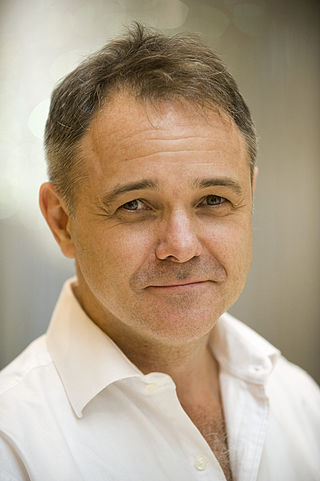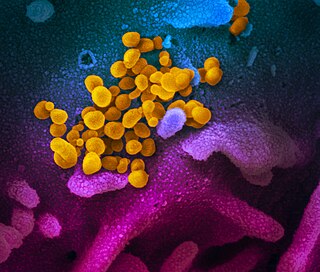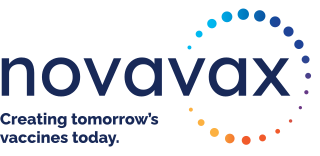
A pandemic is an epidemic of an infectious disease that has spread across a large region, for instance multiple continents or worldwide, affecting a substantial number of individuals. Widespread endemic diseases with a stable number of infected individuals such as recurrences of seasonal influenza are generally excluded as they occur simultaneously in large regions of the globe rather than being spread worldwide.

An epidemic is the rapid spread of disease to a large number of hosts in a given population within a short period of time. For example, in meningococcal infections, an attack rate in excess of 15 cases per 100,000 people for two consecutive weeks is considered an epidemic.
The Pandemic Preparedness and Response Act is a bill introduced on October 5, 2005, by U.S. Senators Harry Reid, Evan Bayh, Dick Durbin, Ted Kennedy, Barack Obama, and Tom Harkin in response to the growing threat of an outbreak of avian influenza. The bill calls for:
The Johns Hopkins Center for Health Security is an independent, nonprofit organization of the Johns Hopkins Bloomberg School of Public Health. The center works to protect people's health from epidemics and pandemics and ensures that communities are resilient to major challenges. The center is also concerned with biological weapons and the biosecurity implications of emerging biotechnology.

The Biomedical Advanced Research and Development Authority(BARDA) is a U.S. Department of Health and Human Services (HHS) office responsible for the procurement and development of medical countermeasures, principally against bioterrorism, including chemical, biological, radiological and nuclear (CBRN) threats, as well as pandemic influenza and emerging diseases. BARDA was established in 2006 through the Pandemic and All-Hazards Preparedness Act (PAHPA) and reports to the Office of the Assistant Secretary for Preparedness and Response (ASPR). The office manages Project BioShield, which funds the research, development and stockpiling of vaccines and treatments that the government could use during public health emergencies such as chemical, biological, radiological or nuclear (CBRN) attacks.

Sir Jeremy James Farrar is a British medical researcher who has served as chief scientist at the World Health Organization since 2023. He was previously the director of the Wellcome Trust from 2013 to 2023 and a professor of tropical medicine at the University of Oxford.
The Global Research Collaboration for Infectious Disease Preparedness (GloPID-R) is an international initiative to anticipate and prepare for future threats from infectious diseases. GloPID-R is intended to be a means for facilitating communication and collaboration between its member bodies, as opposed to a funding or disaster response entity. Its secretariat is funded by the European Union through its Horizon 2020 initiative.
The Coalition for Epidemic Preparedness Innovations (CEPI) is a foundation that takes donations from public, private, philanthropic, and civil society organisations, to finance independent research projects to develop vaccines against emerging infectious diseases (EID).

Disease X is a placeholder name that was adopted by the World Health Organization (WHO) in February 2018 on their shortlist of blueprint priority diseases to represent a hypothetical, unknown pathogen that could cause a future epidemic. The WHO adopted the placeholder name to ensure that their planning was sufficiently flexible to adapt to an unknown pathogen. Director of the US National Institute of Allergy and Infectious Diseases Anthony Fauci stated that the concept of Disease X would encourage WHO projects to focus their research efforts on entire classes of viruses, instead of just individual strains, thus improving WHO capability to respond to unforeseen strains. In 2020, experts, including some of the WHO's own expert advisors, speculated that COVID-19, caused by the SARS-CoV-2 virus strain, met the requirements to be the first Disease X.
Herman Goossens is professor of microbiology at the University of Antwerp where he is head of the Laboratory of Medical Microbiology, part of PREPARE, the European Union's Platform for European Preparedness Against (Re-)emerging Epidemics of which he is the coordinator.
Prepare or variation, may refer to:

Richard Hatchett is an American oncologist and epidemiologist who has been serving as chief executive officer of the Coalition for Epidemic Preparedness Innovations (CEPI) in Oslo and London since 2017. He was awarded the Secretary of Health and Human Services's Award for Distinguished Service.

Syra Madad is an American pathogen preparedness expert and infectious disease epidemiologist. Madad is the Senior Director of the System-wide Special Pathogens Program at NYC Health + Hospitals where she is part of the executive leadership team which oversees New York City's response to the Coronavirus disease 2019 pandemic in the city's 11 public hospitals. She was featured in the Netflix documentary series Pandemic: How to Prevent an Outbreak and the Discovery Channel documentary The Vaccine: Conquering COVID.

Michael Joseph Ryan is an Irish epidemiologist and former trauma surgeon, specialising in infectious disease and public health. He is executive director of the World Health Organization's Health Emergencies Programme, leading the team responsible for the international containment and treatment of COVID-19. Ryan has held leadership positions and has worked on various outbreak response teams in the field to eradicate the spread of diseases including bacillary dysentery, cholera, Crimean–Congo hemorrhagic fever, Ebola, Marburg virus disease, measles, meningitis, relapsing fever, Rift Valley fever, SARS, and Shigellosis.
Planning and preparing for pandemics has happened in countries and international organizations. The World Health Organization writes recommendations and guidelines, though there is no sustained mechanism to review countries' preparedness for epidemics and their rapid response abilities. National action depends on national governments. In 2005–2006, before the 2009 swine flu pandemic and during the decade following it, the governments in the United States, France, UK, and others managed strategic health equipment stocks, but they often reduced stocks after the 2009 pandemic in order to reduce costs.
The Global Preparedness Monitoring Board is a joint arm of the WHO and the World Bank. It was created by both organizations in response to the Western African Ebola virus epidemic.

Maria Petronella Gerarda Koopmans is a Dutch virologist who is Head of the Erasmus MC Department of Viroscience. Her research considers emerging infectious diseases, noroviruses and veterinary medicine. In 2018 she was awarded the Netherlands Organisation for Scientific Research (NWO) Stevin Prize. She serves on the scientific advisory group of the World Health Organization.

202-CoV is a COVID-19 vaccine candidate developed by Shanghai Zerun Biotechnology Co., Ltd., Walvax Biotech. It is one of several candidates under development by Walvax.
The International Severe Acute Respiratory and emerging Infection Consortium (ISARIC) is an international research initiative based in Oxford, England. It is hosted at the Nuffield Department of Medicine within the University of Oxford and led by the Epidemic diseases Research Group Oxford (ERGO). ISARIC is funded by the Bill & Melinda Gates Foundation, Foreign, Commonwealth and Development Office, and Wellcome Trust.











